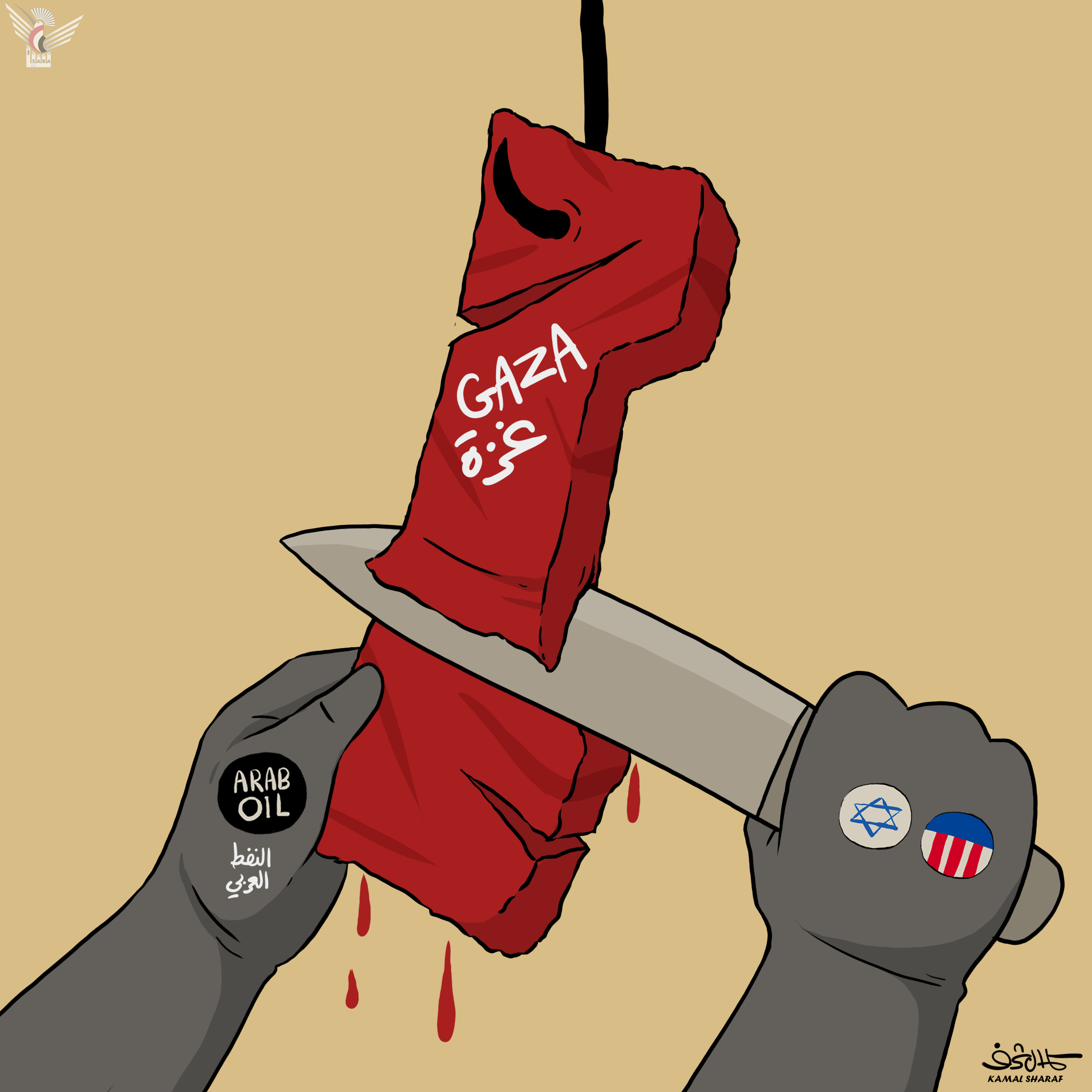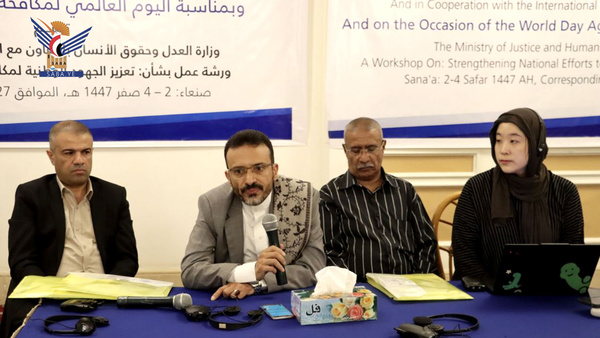Sana’a – SABA:
The Ministry of Justice and Human Rights launched a three-day workshop today under the title “Strengthening National Efforts to Combat Human Trafficking,” with participation from 35 representatives of the Presidency, judiciary, security agencies, human rights organizations, and relevant ministries.
The workshop covers topics such as the definition and characteristics of human trafficking, forms of exploitation, the connection between migrant smuggling and trafficking, and mechanisms for national coordination. It also addresses relevant national and international legislation, victim and witness rights, community prevention, media awareness, and reporting and monitoring systems.
Deputy Minister of Justice and Human Rights, Judge Ibrahim Al-Shami, opened the session by emphasizing the need for unified national efforts and institutional coordination to combat this transnational organized crime. He highlighted the legislative, judicial, and oversight roles the Yemeni state plays in this domain.
He explained that the workshop aligns with the ministry’s priorities under the Government of Change and Reconstruction, particularly in training and building the capacity of those working to combat organized crimes, especially human trafficking. Al-Shami stressed that these crimes pose serious local and global threats and require joint efforts from judicial, security, and civil institutions, in coordination with national and international organizations.
He affirmed the government’s commitment to international agreements, provided they do not conflict with Yemeni legislation rooted in Islamic values. He noted that the ongoing war and blockade have exacerbated humanitarian conditions in Yemen, increasing illegal migration and exposing vulnerable groups—especially women and children—to exploitation and trafficking.
Al-Shami referenced the strong interest shown by revolutionary leadership, particularly Sayyed Abdul-Malik Badr al-Din al-Houthi, who has addressed these crimes in his lectures, stressing their threat to human dignity and values.
He called on the international community to respect Yemen’s sovereignty and engage with the Sana’a government as a legitimate authority effectively operating on the ground to protect its people and uphold human rights despite immense challenges.
Also speaking at the workshop, Heejong Yoo, Director of Protection at the International Organization for Migration (IOM), expressed appreciation for the partnership with the ministry and emphasized the risks of trafficking faced by crisis-affected Yemenis and migrants. She confirmed the IOM’s continued cooperation despite limited resources.
Judge Khaled Al-Baghdadi, Head of the Technical Office at the Ministry, described trafficking as one of the most dangerous forms of organized crime. He said the workshop offers a vital platform for consultation, training, and knowledge-building to support a national anti-trafficking framework based on four pillars: prevention, protection, prosecution, and reintegration.
Al-Baghdadi noted significant progress in completing the legal and institutional framework, stating that the executive regulations are ready following Cabinet approval, and that implementation has begun, including the allocation of bank accounts for funding anti-trafficking programs.
On the first day, Legal Advisor Hamid Al-Rafiq presented on the concept of human trafficking, its characteristics, forms of exploitation, and the link to migrant smuggling.

| more of (Local) |




